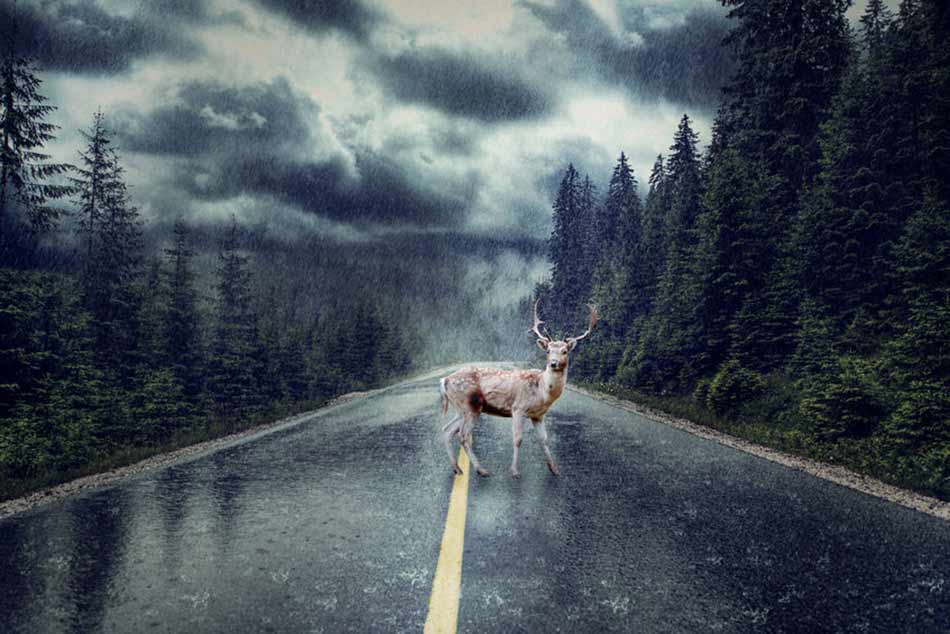It is that time of year again when drivers should remind themselves there should be a heightened awareness of seasonal driving. During November and into December, we have increased road hazards for both wild life and changing weather conditions as winter settles. (See also our Vintage Car Winter Storage Tips.)
Without warning, this is prime time for deer to suddenly appear in front of your car on the roadway. Professional risk managers, police and emergency services personnel all agree that while such a sudden onset of danger to both the driver and the animal can produce tragic results, the best practice for a driver is not to attempt to swerve the car to try and miss it. All too often, the animal gets away unharmed, all the while the car, with its occupants, ends up in worse danger with resulting damage and passenger injuries.
If you see a deer or moose crossing sign, be extra alert and slow down. Deer and moose cross roadways for a wide variety of reasons, at different times of the day. We should all pay special attention in these hazard sign zones. That is not to suggest they only cross at the marked areas. The signs simply state the area is a known hazardous area.
Ontario is now seeing frosty mornings and increased winter storm weather events. Special attention needs to be paid by drivers to ensure they maintain adequate visibility. It is the time of year we can experience “black ice” – suddenly what appeared to be clear asphalt road surface is slick with ice where a car can lose all control. A best practice recommends snow tires are installed on your car. If you choose to run all-season tires, consult your tire dealer to ensure you maintain adequate tread for winter driving. Remember to allow increased stopping distance when road conditions might be compromised.
Not only do you want to keep yourself and family safe from increased road hazard, risk control is one of the best measures you can take to stabilize and keep your car insurance rates low as possible. An often misunderstood issue is where you may slide off the road and police interpret it as a “weather related” accident and do not lay charges under the Highway Traffic Act. The absence of someone getting a ticket for this does not mean such an accident is not their fault as far as their car insurance is concerned. It was still and accident and will be counted as such for the driver or vehicle owner – if nothing else, the driver had made a decision to drive as opposed to not take the winter conditions risk.
For more information on this, or any other insurance or risk related questions you might have, please contact your insurance broker at Zehr Insurance Brokers Limited.
John Zehr, CIP., CCIB.,C RM
President – Zehr Insurance Brokers Limited.







